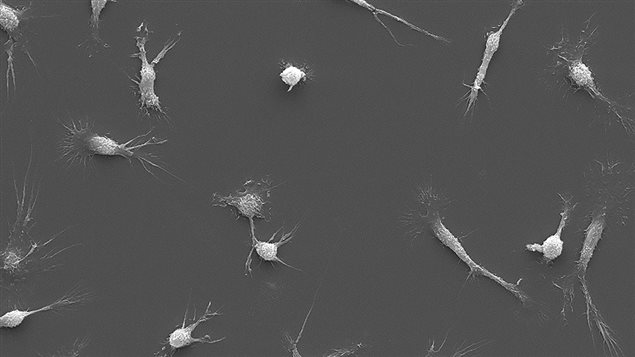A new study suggests that as we age the microbes in our intestines change and cause inflammation leading to declining health. Further research could eventually provide therapies to change those microbes and stave off illnesses that are associated with aging.

Seeking ‘a long and healthy life’
“The goal for all of us…is to live a long and healthy life,” says Dawn Bowdish, a professor at McMaster University and senior author of the study. “My lab is not interested in extending life so that we live forever, but my lab focuses really on making sure that all the years we have are good healthy years.”
ListenTo do this study, researchers used germ-free mice. Some of them were put in cages with old mice and the rest co-habited with young mice. The mice adopted the gut microbes of the mice they lived with. Those that had lived with the young mice did not show age-related increases in inflammation and a higher proportion of them lived a long time.
Staving off dementia, diabetes, heart disease
People who have high levels of inflammation are likely to be more frail, hospitalized and less independent. They are more susceptible to infections, chronic conditions such as dementia, cardiovascular disease and metabolic issues like diabetes.
Gut bacteria can be changed. Some people already take probiotics to change their biomes. It’s hoped that future research will reveal which are the good bacteria and which are the bad so that ways can be found to improve the makeup of intestinal biomes as people age.







For reasons beyond our control, and for an undetermined period of time, our comment section is now closed. However, our social networks remain open to your contributions.